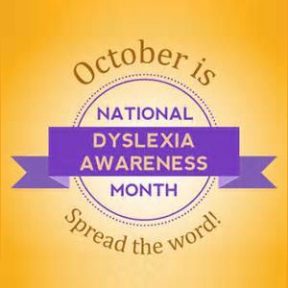 When college tuition for a 4-year bachelor’s degree exceeds $200,000, you would think colleges would boast about their professors — those who TEACH the students.
When college tuition for a 4-year bachelor’s degree exceeds $200,000, you would think colleges would boast about their professors — those who TEACH the students.
RateMyProfessor.com just published a list of colleges with the highest-rated professors, and it’s no surprise that none of the Ivies or super selective colleges made the list. Why? Those colleges want professors to focus on research to win awards; they’re not concerned with the professors’ ability to teach and that’s why grad students teach many undergraduate classes.
Ever wonder why college football coaches make more than a million dollars a year, while professors can barely make a living wage? College is big business and they spend their dollars where they get the most bang for the buck. Unfortunately for students, it’s not in the classrooms.
[Source]
 When college tuition for a 4-year bachelor’s degree exceeds $200,000, you would think colleges would boast about their professors — those who TEACH the students.
When college tuition for a 4-year bachelor’s degree exceeds $200,000, you would think colleges would boast about their professors — those who TEACH the students.
RateMyProfessor.com just published a list of colleges with the highest-rated professors, and it’s no surprise that none of the Ivies or super selective colleges made the list. Why? Those colleges want professors to focus on research to win awards; they’re not concerned with the professors’ ability to teach and that’s why grad students teach many undergraduate classes.
Ever wonder why college football coaches make more than a million dollars a year, while professors can barely make a living wage? College is big business and they spend their dollars where they get the most bang for the buck. Unfortunately for students, it’s not in the classrooms.
[Source]
 When colleges now accept 58% girls and just 42% boys, admissions committees are — once again — trying to level the playing field. Hmm. It’s beginning to sound a bit like Affirmative Action…
When colleges now accept 58% girls and just 42% boys, admissions committees are — once again — trying to level the playing field. Hmm. It’s beginning to sound a bit like Affirmative Action…
Forty years ago, girls were underrepresented in college enrollment because colleges thought that they only went to college to get their Mrs. degrees (to find an eligible bachelor with the potential to make big bucks).
Middle and high school teachers downplayed the importance for girls to do well in math and science. With Women’s Liberation movements making strides in the ’60s and ’70s, this changed. Remember burning bras, and yes, hairy legs?
To level the playing field, the US Dept of Justice implemented Title IX — a federal law that prohibits discrimination on the basis of sex in any federally funded education program or activity. So the ratio of boys vs girls became closer to 50/50 in the admissions arena.
But Title IX couldn’t be the only reason for the increase in girls going to college because women started enrolling in colleges all over the world without Title IX. So why the change in trends?
Claudia Golden, an economist at Harvard, claims that this surge in girls entering college is all about the birth control pill. With young ladies having the opportunity to plan their lives: marriage, children, and careers, they could go to college and invest in careers before starting families. While this makes sense, it still doesn’t explain why the girls-to-boys ratio is now 58% to 42%.
Here’s my theory: We all know that girls mature faster than boys. Right? Remember in 2nd grade when girls flirted with boys who only wanted to play with boys at recess? Then in high school, girls wanted steady relationships when boys were just being, well, immature and really clueless about commitments? Oh, those painful years for girls while they waited for the boys to catch up with them.
Now look at this from a different perspective: girls have always been better organizers and could get their homework done on time, study for tests, and still have time to complete their college applications than boys. And, girls are less likely to be diagnosed with ADHD and get into trouble with the law. Painful, but it’s true. So maybe this is why girls get into college at a faster rate than boys do.
Now that the tables are turned and there are more girls getting into college than boys, college admissions committees are doing a sort of behind-the-scenes affirmative action for boys. Check out the numbers. At Brown, the acceptance rate for boys is 11 percent; for girls it’s just 7 percent. At Vassar, it’s 34% for boys and 19% for girls. Once again, that pendulum is swinging but this time in the opposite direction.
Looks like boys need a handicap to even the score board…
 Did you know that one in every five people is dyslexic? That’s 20% of our population!
Did you know that one in every five people is dyslexic? That’s 20% of our population!
Yet classroom teachers aren’t trained to teach students with dyslexia, and children often go undiagnosed for years.
Parents, teachers, and doctors really don’t know much about what causes dyslexia and what treatment options are available. What makes dyslexia different from other learning problems is that people with dyslexia have average to superior intelligence — they are NOT slow learners.
They are often quite gifted in math, science, fine arts, journalism and other creative areas. Geniuses like Albert Einstein, Thomas Edison, and Leonardo da Vinci were dyslexic.
So what is dyslexia?
According to the International Dyslexia Association (IDA), dyslexia is characterized by difficulties with word recognition and by poor spelling and decoding abilities. Secondary consequences may include problems in reading comprehension, which can result in limited reading experiences, vocabulary, and general knowledge.
Some of the difficulties associated with dyslexia (according to the IDA) include:
- Learning to speak
- Learning letter names and their sounds
- Organizing written and spoken language
- Memorizing math facts
- Reading quickly enough to comprehend
- Comprehending reading assignments
- Spelling
- Learning a foreign language
- Solving math equations
Dyslexia is caused by neurological problems in the brain. With proper training and exercises, dyslexic people can learn to read, write, and excel in a wide variety of careers.
A Merit Academy alumni, Zohar Wouk, struggled with dyslexia all throughout his schooling. After high school graduation, he formed a tech startup called Futuristic Lights and recruited an excellent team of programmers and social marketing experts. Zohar’s vision and drive was instrumental in the instant success of this business. Just 15 minutes after they launched their Kickstarter campaign, they raised $20,000 — and his company went on to raise over $50,000 in one month! This is a perfect example of how the dyslexic brain can be innovative and creative.
Long-time dyslexia advocate and mother, Char Mercadante, continues to promote dyslexia awareness and drive campaigns to improve teacher training — even after both of her sons have gone off to college. Next week, she will be a guest blogger on GakkoMom. Can’t wait to hear the latest about new legislation for dyslexia research and teacher training programs. Stay tuned!
 Each year college essay prompts get more complicated and difficult to write.
Each year college essay prompts get more complicated and difficult to write.
While I encourage my students to be honest and write from their hearts, I find myself explaining what the college admissions committees are looking for as these students begin this agonizing process. So many students feel defeated before they even begin the application process. Most believe that they haven’t done enough or that their lives have been so boring because they don’t have one parent in prison and haven’t been abused the other one.
PRO TIP: Sob stories are well received ifyou have overcome the obstacle.
Some prompts require deep philosophical thought processes that most teens don’t have at the young age of 17 or 18.
It seems that selective colleges are expecting students to have already done miraculous things BEFORE they start college. When my students read about applicants who have cured diseases or engineered innovative solutions, they question whether they will get into colleges with such fierce competition.
I wonder if colleges have forgotten that students want to go to college to gain the knowledge and skills to be successful once they graduate from — not before they arrive — to college.
[Source]
 Paleo and raw vegan people — you can eat delicious chocolaty and nutty desserts!
Paleo and raw vegan people — you can eat delicious chocolaty and nutty desserts!
I’ve been making these nut balls for 4 months and LOVE them!
My friends and family keep asking me for the recipe, so here it is.
There are no grains (flour), sugar, or bad oils in these nuggets.
They’re made with mostly organic nuts and seeds, and it has cacao (CHOCOLATE!) and stevia (for sweetness).
They’re only 160 calories each, and they fill you up!
It’s a diabetic’s ideal dessert!
Raw Vegan Nut Balls (Makes 30)
Ingredients:
2 cups almonds
1 cup cashews
1 cup pecans
1/2 cup sunflower seeds
1/4 cup chia seeds
1/3 cup flax and hemp seed blend
1/3 cup raw cacao powder
1/3 cup stevia
1 tsp tumeric
1 tsp cinnamon
1/2 cup flax seed oil
1/2 cup coconut oil
1/2 cup almond milk
Directions:
1. Put all dry ingredients and seasonings into a food processor. Pulse it a few times until all ingredients are mixed but not pulverized. Leave some nut chunks to offer texture to the nutballs.
2. Add the oils and milk to make the mixture sticky. Add more coconut oil or almond milk to create the consistency needed to make 1″ or 1 1/2″ balls.
3. Spray a cookie sheet with oil to keep the nut balls from sticking.
4. With wet hands, roll your nut balls and place on cookie sheet.
5. Place cookie sheet in the refrigerator for an hour to set.
6. Best when eaten chilled. Can be frozen and served later.
Creative options:
1. Roll nutballs in shredded coconut flakes
2. Place a raspberry or blackberry in the center of the nut ball
3. Place a raspberry, blackberry or blueberry on top of the nut ball
 Did you know that every time you take the SAT, you can list up to 4 colleges to send those scores to for FREE?
Did you know that every time you take the SAT, you can list up to 4 colleges to send those scores to for FREE?
If you were too frazzled (can’t blame you for that) to select the 4 colleges on the test date, you still have time to order them.
The College Board gives you 9 days to choose the 4 colleges that will receive the free scores; on the 10th day after the test, you’ll have to pay for all additional SAT score reports to be sent out.
Kinda like a free lunch! Just go to your My SAT at collegeboard.org.
 I recommend that high school students take the SAT or ACT no more than three times.
I recommend that high school students take the SAT or ACT no more than three times.
Here are four tips for your three tries:
1] Don’t take it any earlier than your junior year unless you are a strong test taker and you are confident that you can earn a high score. You don’t want to have a really low score on your transcript or record sheet — it will only hurt your application.
2] ONLY take the SAT or ACT after you have completed several practice tests and have demonstrated that your scores are where you would like them to be.
3] Students who take advanced sciences (AP or Honors) should take the SAT II in June of the same year so they’ll be most prepared to do well. Remember, that you can’t take the SAT and the SAT II on the same day.
4] Check out the dates for the SAT and ACT and sign up now. Double check your sports and family calendars to make sure you’re free on those dates.
Most colleges will accept SAT and ACT tests taken until December of your senior year for regular admission. Early Action and Early Decision applications will require an earlier test date (check with each college to be sure).
| Test | Test Date | Deadline |
|---|---|---|
| ACT | 12/12/2015 | 11/16/2015 |
| ACT | 2/6/2016 | 1/8/2016 |
| ACT | 4/9/2016 | 4/4/2016 |
| ACT | 6/11/2016 | 05/06/2016 |
| SAT | 11/7/2015 | 10/9/2015 |
| SAT | 12/5/2015 | 11/5/2015 |
| SAT | 01/23/2016 | 12/28/2015 |
| SAT | 03/05/2016 | 02/05/2016 |
| SAT | 05/07/2016 | 04/08/2016 |
| SAT | 06/04/2016 | 05/05/2016 |
 Whether you’re interviewing for a job or to get into a top college, you NEED to stand out among your competition.
Whether you’re interviewing for a job or to get into a top college, you NEED to stand out among your competition.
Check out Business Insider’s 15-Step Guide to Acing Any Job Interview.
Like a good Boy Scout, BE PREPARED!
Do your homework, make a good first impression, show off what you’ve done and who you are.
Now go get ’em!
[Source]
 I read this interesting article about happiness — something I think we all aspire to achieve — about a Harvard professor’s research that found that success doesn’t bring happiness, but happiness brings success. So all of you who chase the promotion, raise, relationship, or ideal weight to be happy… according to Shawn Achor, you’ve got it all backwards. Say what?
I read this interesting article about happiness — something I think we all aspire to achieve — about a Harvard professor’s research that found that success doesn’t bring happiness, but happiness brings success. So all of you who chase the promotion, raise, relationship, or ideal weight to be happy… according to Shawn Achor, you’ve got it all backwards. Say what?
He found 4 simple things you can do to be happy NOW, and success will follow suit. I think he’s on to something. Check these out:
#1: See problems as challenges, not threats
You really can’t stop problems from arising, right? So if a problem is a threat to you, you’ll become defensive and probably focus on future doom and gloom. Is this resonating with you? If so, this will increase your stress-related symptoms. Something you don’t want to do. But on the other hand, if you consider your problems as challenges instead of threats, you could use your creative juices to find solutions by actively engaging in innovative ways to solve the problems. In the process, you’ll be happier because you’re engaged in fixing the problem — not wallowing in it, and as a result, you’ll be more successful.
#2: Seek social connections to increase academic achievement
Contrary to popular belief, students who isolate themselves in libraries or dorm rooms to deal with stressful academic environments (midterms or finals), actually perform worse than their counterparts. Yup. They are more likely to burn out, drop out, or transfer to a different school. So instead of becoming a miserable hermit during finals, increase your social activity in the middle of stress. Having this social interaction is the greatest predictor of happiness. If you want to reduce stress, increase productivity, and get that A or promotion, then don’t just seek social support, provide it to others. According to Wharton professor Adam Grant, people who provide social support get some of the greatest benefits.
#3: Send a “Thank You” email every morning
By writing and sending a 2-minute email or text praising or thanking someone will increase your social connection, and therefore increase your happiness. This improves teamwork, office or team morale, and of course, increases success. Reach out to a different person every day for 21 days and you’ll be amazed by the responses you’ll receive from everyone. What goes around, comes around!
#4: Organize your 20-second rule
If numbers 1 through 3 make sense to you, the biggest obstacle you’re probably facing is motivation to do them. Right? So they came up with #4 to give you the “activation energy” to do them. By setting yourself up to get started on all of the above AHEAD OF TIME, you’ll be more likely to do them. Right? You know your biggest hurdles, so outsmart yourself! If you don’t think you’ll write those emails every morning, open your email the night before and start the email: “Hey David, Just wanted to …”. Leave that up on your screen so when you arrive in the morning, it’ll be the first thing you do — after your first cup of coffee, of course! Just set yourself up to do the things by outsmarting yourself.
Even if you’re predisposed to suffer from depression because it’s genetic, this study suggests that changing your mindset and habits can actually make you happier and more successful. So incorporate these 4 tips into your daily routine by making them good habits. This Harvard professor believes that doing these things to make you happy might trump genetics. And all of this without drugs or years of therapy!
[Source]
 This article in Psychology Today, Why French Kids Don’t Have ADHD, by Marilyn Wedge, PhD caught my attention last weekend.
This article in Psychology Today, Why French Kids Don’t Have ADHD, by Marilyn Wedge, PhD caught my attention last weekend.
She discusses how French families structure their children’s lives compared to American parents, which is certain to cause a stir here… I am curious about how the American diet may have a profound influence on our children’s behavior and attention span.
While I’ve seen Ritalin and Adderall positively change children’s behaviors and focus, I’m interested to learn more about what the French feed their children and if in fact, their diets are instrumental in their low ADHD numbers. I would imagine that croissants are generally better for you than a bag of Cheezey Doodles SnakTreatz(TM)…
[Source]










